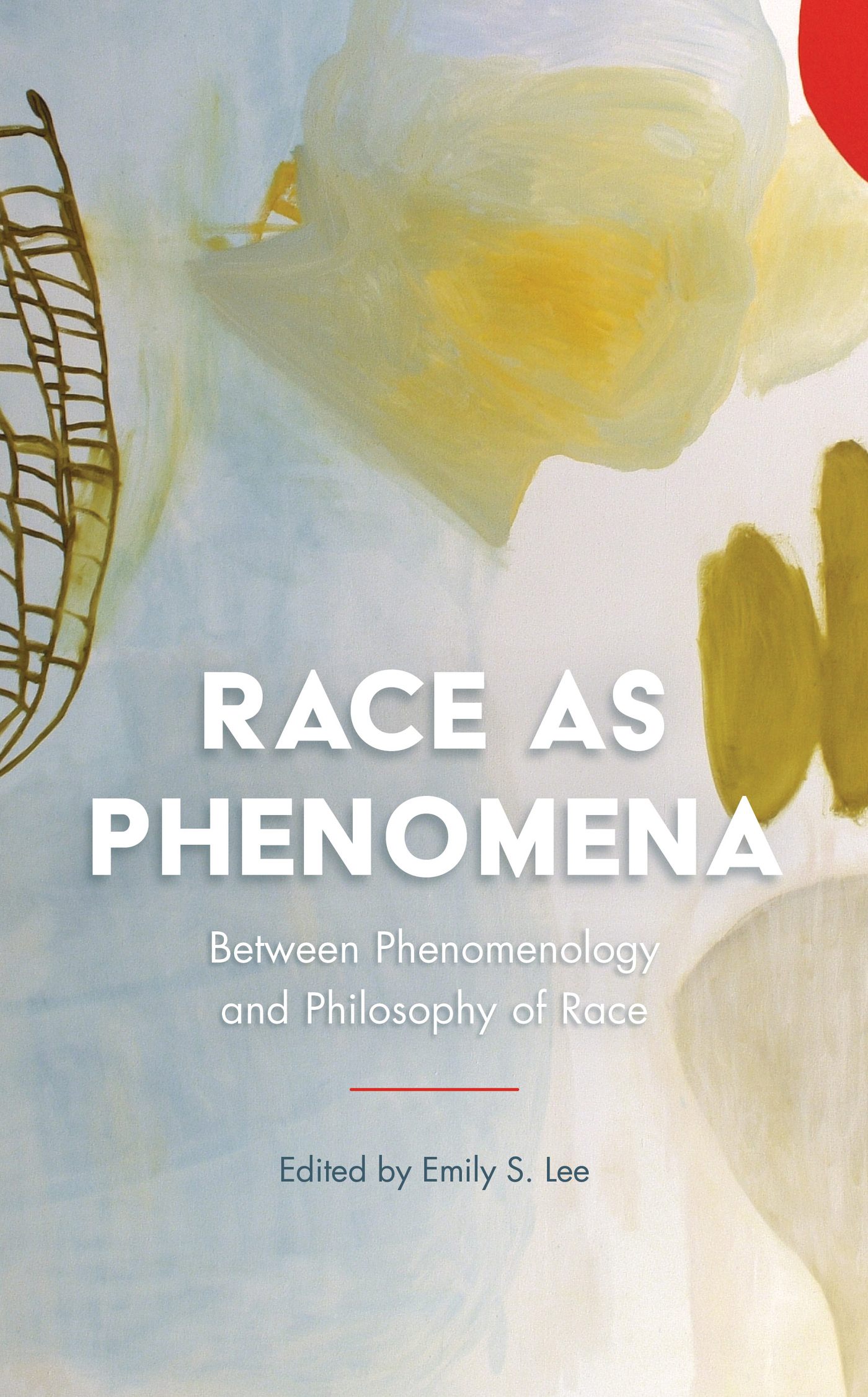Race as Phenomena
Race as Phenomena
Between Phenomenology
and Philosophy of Race
Edited by
Emily S. Lee
ROWMAN & LITTLEFIELD
Lanham Boulder New York London
Executive editor: Frankie Mace
Assistant editor: Rebecca Anastasi
Marketing manager: Sean McDonagh
Credits and acknowledgments for material borrowed from other sources, and reproduced with permission, appear on the appropriate page within the text.
Published by Rowman & Littlefield
An imprint of The Rowman & Littlefield Publishing Group, Inc.
4501 Forbes Boulevard, Suite 200, Lanham, Maryland 20706
https://rowman.com
6 Tinworth Street, London SE11 5AL
Copyright 2019 by Emily S. Lee
All rights reserved. No part of this book may be reproduced in any form or by any electronic or mechanical means, including information storage and retrieval systems, without written permission from the publisher, except by a reviewer who may quote passages in a review.
British Library Cataloguing in Publication Information Available
Library of Congress Cataloging-in-Publication Data
Name: Lee, Emily S., 1971, editor.
Title: Race as phenomena : between phenomenology and philosophy of race / edited by Emily S. Lee.
Description: Lanham : Rowman & Littlefield, [2019] | Includes bibliographical references and index.
Identifiers: LCCN 2019005449 (print) | LCCN 2019007688 (ebook) | ISBN 9781786605382 (electronic) | ISBN 9781786605368 (cloth : alk. paper) | ISBN 9781786605375 (pbk. : alk. paper)
Subjects: LCSH: RacePhilosophy. | EthnicityPhilosophy.
Classification: LCC HT1523 (ebook) | LCC HT1523 .R2519 2019 (print) | DDC 305.8001dc23
LC record available at https://lccn.loc.gov/2019005449
 TM The paper used in this publication meets the minimum requirements of American National Standard for Information Sciences Permanence of Paper for Printed Library Materials, ANSI/NISO Z39.48-1992.
TM The paper used in this publication meets the minimum requirements of American National Standard for Information Sciences Permanence of Paper for Printed Library Materials, ANSI/NISO Z39.48-1992.
Printed in the United States of America
Acknowledgments
I would like to thank all the contributors to this book. This is an eclectic group of people who are both established and budding within the field of philosophy. Im glad we share interests in philosophy of race and phenomenology. Ive long admired some of the contributors work, and Im learning so much from the newer members. I am proud to be a member of this community.
I would also like to thank the editorial and publishing staff at Rowman & Littlefield International. The idea for this collection came from this publishing company; Im very impressed with the forethought of its staff. It has been a pleasure working with Sarah Campbell, Rebecca Anastasi, and recently Frankie Mace in finishing this book. Their professionalism and patience were just what I needed.
Thank you, Professor Kyung Sun Cho, for permission to use one of your paintings for the cover design of this book. (You can see her work at www.kyungsuncho.com.) I have learned a lot about the temporality of color from you. Thank you for being such an admirable colleague here at California State University at Fullerton, and more importantly thank you for your friendship.
Last but definitely not least, I want to thank my family and friends for their support, especially my immediate family: Nelson Toy and Lilah Toy. Thank you, Lilah, for quiet time that lets me have a career and be your mommy.
Introduction
With the election of Barack Obama to the presidency in 2008, talk of a postracial future proliferated. With the election of Donald Trump to the presidency in 2016, where is the talk of a postracial future? I think that talk of a postracial future has subsided. Nevertheless, philosophers of race still question the continued discussion of race. For me, the necessity of a continued discussion and analysis about race is obvious. It is obvious because elementary school black boys still face disproportionate disciplinary action from their teachers. It is obvious because the current immigration debate clearly takes place along the lines of race, such that talk of no tolerance is not directed at white population groups. It is obvious from the now publicized police brutality against people of color. Each of these examples illustrates the continued relevance of race in not simply a trivial sense but in significant, materially important ways that economically impact lives. Hence, it is more than obvious that race still functions as an axis of meaning in the current times.
In this context, when on the one hand I must acknowledge that numerous white people are tired of talking about race, and most people of color cannot help but talk about race, the traditional philosophical method of searching for a universal, systematic means of analysis does not suffice. As a philosopher, I long for such a systematic means to understand the functioning of race. But I have come to accept that expressions of race and racism are so creative that they defy such systematicity, consistency, and predictability. For this reason, I turn to the phenomenological method because phenomenology aims to understand the situation of being-in-the-world, of the reality and the meaning of experience. Hence, instead of systematicity, phenomenological methods aim to understand the contextually laden, ambiguous nuances of being-in-the-world. A growing number of philosophers have found such an exploration of the interstices between phenomenology and philosophy of race productive. As the philosophers in this text demonstrate, addressing the question of race through a phenomenological method may not achieve systematicity and universal understanding, but it does provide for depth in understanding the function of race.
The Phenomenological Framework
Phenomenology is first and foremost a descriptive enterprise to avoid the epistemic mistakes of empiricists and intellectualists. Without the certainty of immediate access to the world or ones self-consciousness, the phenomenological framework aims to understand the experience of the world as inextricably intertwined between the natural and the cultural, as the objective and the subjective. Phenomenology posits that experience of the world occurs as negotiations between the intentions of the subject and the givens of the world, or rather, that subjectivity and the world condition each other. In other words, the phenomenological framework recognizes the ambiguity of situatedness in the world. This relation that phenomenology explores is the site of racial meaning.
Perhaps most emblematic of this ambiguity of being-in-the-world is human embodiment. Maurice Merleau-Pontys phenomenology centrally figures embodiment and recognizes that all bodies are not exactly and entirely alike. Each bodys positioning in the world reflects the bodys differences. In other words, the phenomenological framework heeds not only the role of the body in general but its particularities. For after all, because of the differences of the body, each individual occupies a unique position in the world that facilitates a unique perspective of the world. The uniqueness of each perspective has its benefits and drawbacks. Because of the differences of the body, each subject possesses her own unique blind spot; the subject cannot possess full self-consciousness of the situations of her own body at any moment.
Phenomenology is not simply a descriptive enterprise but also an ontological enterprise. The conundrum or miracle that phenomenological analysis understands is that, in our situatedness as beings in the world, we nevertheless acquire transcendental ideas and ontological truth. Building on Merleau-Pontys idea of a hyper-dialectic, Francoise Dastur describes a hyper-reflection; she writes, hyper-reflection discovers in the problem of the double genesis of world and reflection, of being and thoughtand not solely the problem of the correlation of thought and the existing object. This double genesis of being and thought describes the endeavor toward the truth of ontology, when both ideas and the world escape epistemic certainty. Without the certitude of either thought and the world, and with any change in one affecting the other, epistemic endeavors have ontological consequences. On the one hand, this hyper-dialectic condition can clearly frustrate. But on the other hand, the possibilities of this ontology can inspire new thinking. This hyper-dialectic condition demonstrates how phenomenological descriptions of the situated and ambiguous embodied experience of race at the same time have ontologic consequences.
Next page
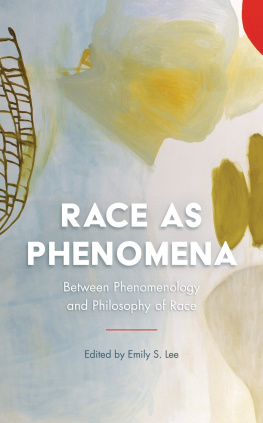

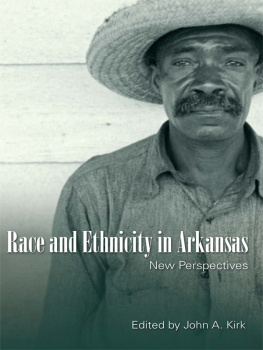
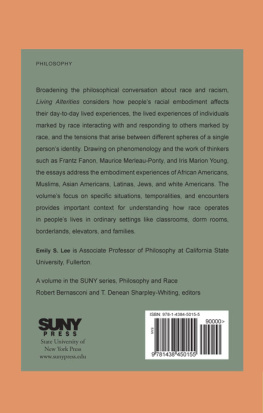
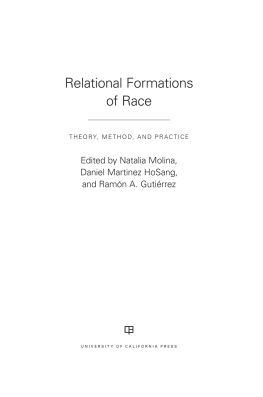
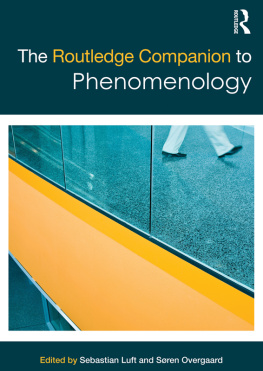
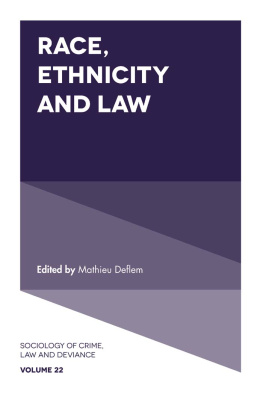
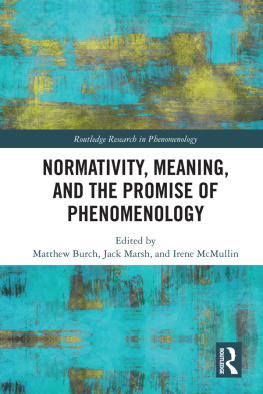
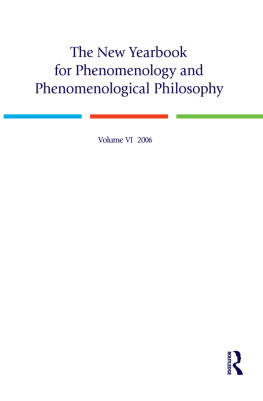
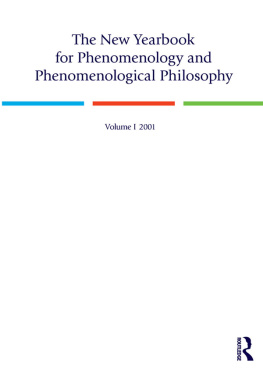
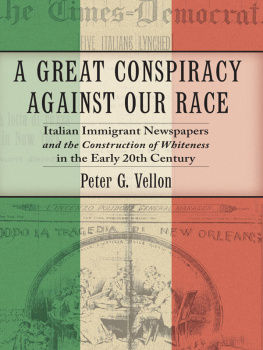
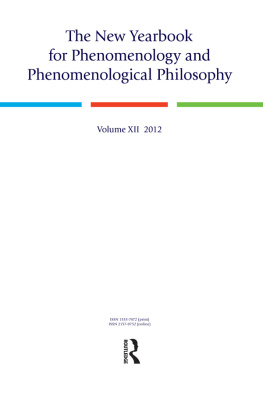
 TM The paper used in this publication meets the minimum requirements of American National Standard for Information Sciences Permanence of Paper for Printed Library Materials, ANSI/NISO Z39.48-1992.
TM The paper used in this publication meets the minimum requirements of American National Standard for Information Sciences Permanence of Paper for Printed Library Materials, ANSI/NISO Z39.48-1992.